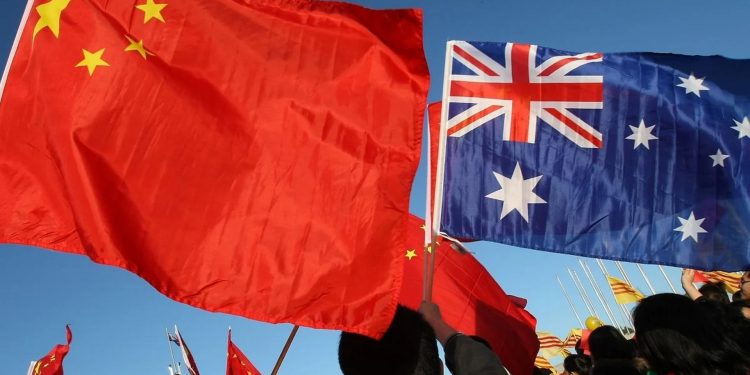China on Thursday suspended an economic agreement with Australia, worsening an already-troubled relationship fractured by spats over the Covid-19 pandemic and human rights abuses.
Tensions between the two sides have have soared after Canberra called for an independent probe into the origins of the coronavirus pandemic and banned telecoms giant Huawei from building Australia’s 5G network.
China — Australia’s biggest trading partner — has already imposed tariffs on more than a dozen key industries, including wine, barley and coal, decimating exports.
In the latest volley, the China-Australia Strategic Economic Dialogue was pulled “based on the current attitude” of the Australian government, China’s National Development and Reform Commission said in a statement Thursday, blaming some officials of a “Cold War mindset” and “ideological discrimination”.
Beijing will “indefinitely suspend all activities under the framework” of the agreement, the statement added.
Australia called the decision “disappointing”, with Trade Minister Dan Tehan saying the dialogue had provided an important forum for the two countries, but adding no such talks had taken place since 2017.
The Australian dollar sank 0.6 percent soon after the news.
Canberra has previously described the accord — designed to boost trade between both sides and introduce large Chinese investors — as one of the “premier bilateral economic meetings with China”.
The first meeting in 2014 was called a chance for “closer economic ties” by Canberra.
But relations between the two have sunk into the deep freeze.
“It’s mainly a symbolic move but still, the trend that it points to… discussion and dialogue being suspended at lower and lower levels, is a real concern,” said James Laurenceson, director of the Australia-China Relations Institute at University of Technology Sydney.
“Overall, what we’re seeing in Canberra and Beijing is both sides doubling down and hardening their stance,” he said.
Last month, Prime Minister Scott Morrison’s government scrapped a Belt and Road deal between Beijing and the state of Victoria.
Chinese President Xi Jinping’s signature Belt and Road Initiative is a vast, trillion-dollar plan for a network of investments and infrastructure across Asia and the world.
Beijing reacted with anger to the Victoria state announcement, warning that taking the axe to the deal would cause “serious harm” to relations.
But critics have claimed the stand-off between the two sides is cover for Beijing to create geopolitical and financial leverage.
This week Australia added to the row by saying a Chinese company’s controversial 99-year-lease on Darwin Port was also under review and could be scrapped.
Darwin is the most important port on Australia’s north coast, the closest to Asia and a base for US Marines who rotate in and out of the country.
Defence minister Peter Dutton told the Sydney Morning Herald his department had been asked to “come back with some advice” about the 2015 deal and refused to rule out forcing Chinese firm Landbridge to divest on national security grounds.
The deal — brokered by local authorities in Australia’s Northern Territory — had raised serious concern in Canberra and Washington, where it was seen as a strategic liability.
It was not immediately clear if the row would impact on a free trade agreement between China and Australia that came into effect in 2015.











